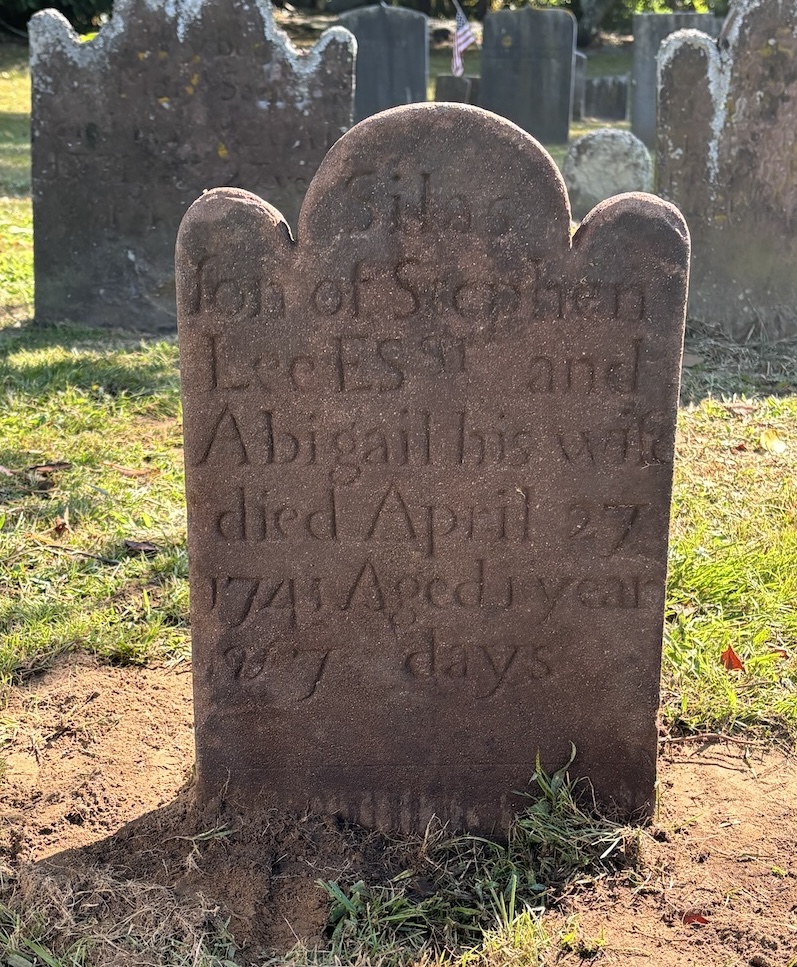
OLD LYME—On Sept. 14, 2024, the Old Lyme Cemetery Association (OLCA) reinstalled a small headstone at the historic Meetinghouse Hill Cemetery, established in 1696.
The scenic burying ground near the site of the town’s first meetinghouse is no longer active, and the inscriptions on many of its aging gravestones cannot now be deciphered. No one had noticed that the headstone for a young child, who died almost three centuries ago, was missing.
Silas Lee died at age one year and seven days on April 27, 1741.
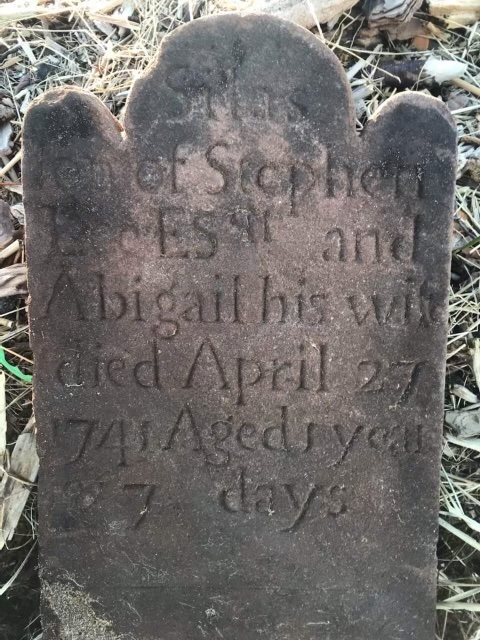
His gravestone was recently discovered by walkers looking for shells on a stretch of beach north of the inner lighthouse in Old Saybrook, across the Connecticut River from Griswold Point.
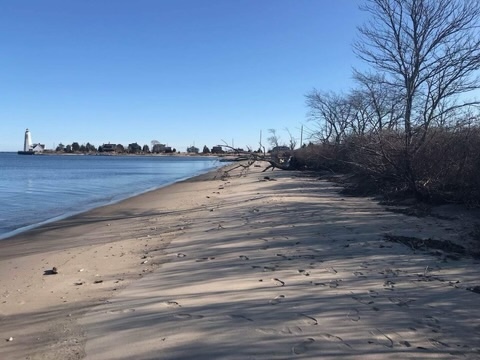
Erosion had exposed the corner of the brownstone marker protruding from a sandy bank some 18 inches below the surface of an adjoining field. Remarkably, the stone was still intact with its inscription well preserved.
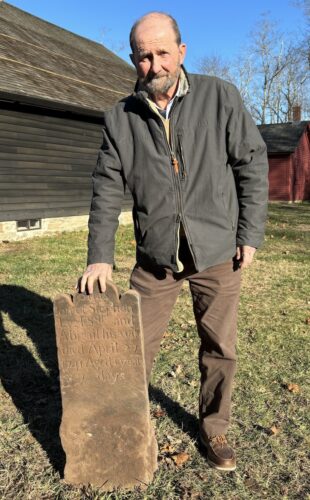
After its discovery, the gravestone for Silas Lee, “son of Stephen, Esquire & Abigail,” was brought to the historic Thomas Lee House in East Lyme and given to Norman Peck, a Lee descendant and president of the East Lyme Historical Society. Recognizing that Capt. Stephen Lee’s family had lived in what is now Old Lyme, Peck transferred the gravestone to the Old Lyme Historical Society whose president, Mark Terwilliger, contacted the Old Lyme Cemetery Association (OLCA.)
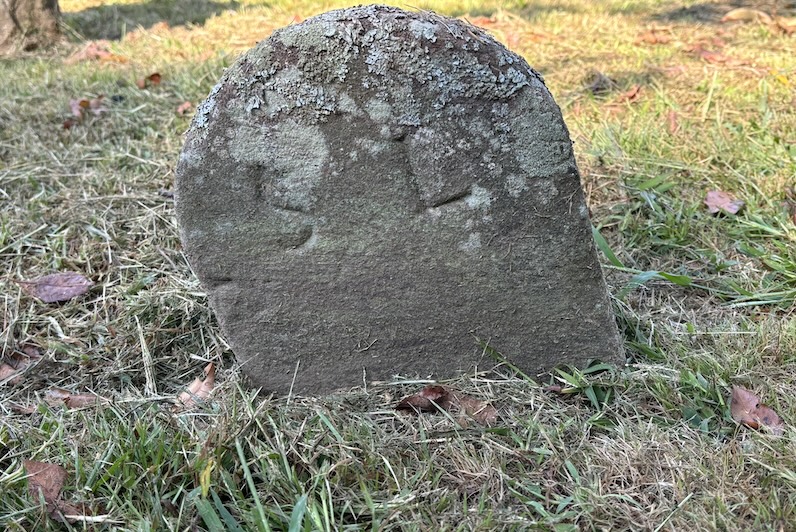
The OLCA then identified the child’s burial site in Meetinghouse Hill Cemetery, where they found the lichen-covered markers of his family and discovered a small slanting footstone with the initials S.L. The Lee family markers likely represent the work of James Stanclift II, who with his father, carved many of the earliest brownstone monuments in Old Lyme’s burying places.
Now, Silas Lee’s headstone stands once again in its original location and his footstone has been cleaned and straightened. The mystery of how or why the headstone ended up in Old Saybrook remains unsolved.
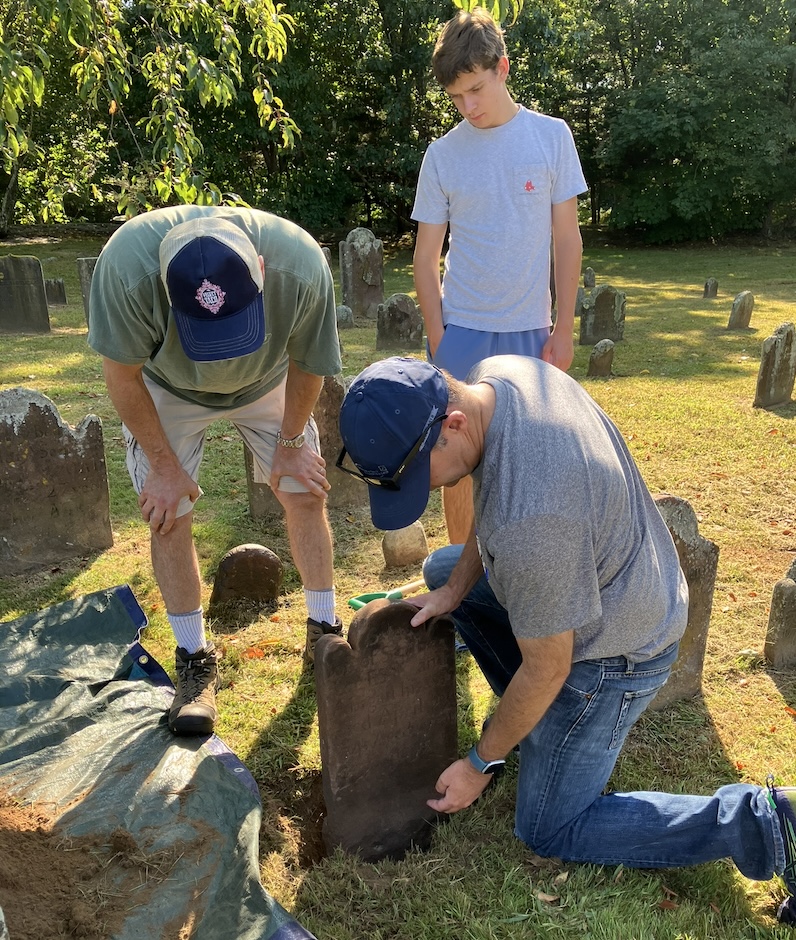
The marker was still standing in the Meetinghouse Hill Cemetery in 1934 when it was recorded in the Charles R. Hale Report, an inventory of Old Lyme’s burying places published that year. While some speculate that the gravestone may have been taken as part of a teenage prank, no evidence yet supports that theory. The marker was found intact with no chips, cracks, or breaks to suggest a hasty or clandestine removal.
While the curious journey of Silas Lee’s gravestone has not been explained, the OLCA is grateful to all who helped return it to its rightful resting place in the Meetinghouse Hill Cemetery.
To learn more about the Old Lyme Cemetery Association, including how to get involved with cemetery restoration, visit https://oldlymecemeteries.org/.